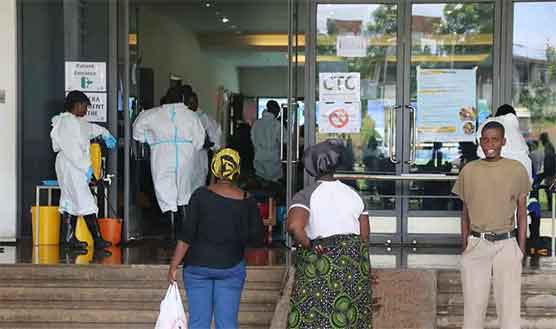
Zambia’s cholera outbreak has hit 174 cases with 2 deaths, spreading from Northern Province to Tanzania. Health officials rush vaccines and clean water, warning fragile infrastructure fuels the crisis.
LUSAKA, Zambia — What began as a single cholera case in Zambia’s Northern Province in early August has exploded into a regional concern, with Health Minister Elijah Muchima confirming 174 cumulative cases and two deaths as of September 18. The outbreak, now crossing into neighboring Tanzania, is shining a harsh light on the water and sanitation gaps that make such crises so hard to stamp out.
From One Case to Regional Threat: How It Unfolded
The first alarm bell rang in Mpulungu District, Northern Province, on August 5—a single confirmed case of cholera, a disease most Americans and Europeans only read about in history books. But by mid-September, that number had ballooned to 174, with 16 people still fighting the infection in treatment centers and 156 lucky enough to recover and go home . “This isn’t just a blip—it’s a reminder that basic infrastructure is a matter of life and death,” said a regional WHO advisor, echoing frustrations shared by public health experts globally.
Worse, the virus hasn’t stayed within Zambia’s borders. Tanzanian health authorities have reported cases linked to the Zambian outbreak, turning a national crisis into a cross-border headache. It’s a scenario straight out of public health textbooks: when disease crosses borders, coordination becomes exponentially harder, and the clock starts ticking faster .
Why Cholera Thrives Here—and Who’s Most at Risk
Cholera is a thief that preys on vulnerability. Caused by Vibrio cholerae bacteria, it spreads through water or food contaminated with feces—think dirty wells, unchlorinated tap water, or street food handled with unwashed hands . For Zambia, where aging water systems and limited access to sanitation are daily realities, it’s the perfect storm.
The math is brutal: without quick rehydration therapy, up to 50% of severe cholera cases turn fatal . Those hit hardest? Communities in Mpulungu, where open defecation is still common, and families can’t afford water treatment tablets. Healthcare workers are also in the line of fire, exposed daily while caring for patients. It’s a stark contrast to the U.S., where cholera is rare because we take clean tap water and sewage systems for granted.
Fighting Back: Vaccines, Clean Water, and Community Action
Zambia isn’t sitting idle. The health ministry, partnering with the national public health institute, has rolled out a multi-pronged response that reads like a playbook for outbreak control. In Mpulungu, they’ve hit a major win: 100% of the target population has gotten the oral cholera vaccine, a crucial shield that can slash infection rates . Next up? Vaccinating 200,000 more people in high-risk areas over the next two weeks—an ambitious goal, but one experts say is necessary.
They’re also going back to basics: handing out water purification tablets, testing wells for contamination, and sending community health workers door-to-door to teach handwashing and safe food prep . It’s a strategy that worked during Lusaka’s 2017-2018 cholera crisis, where emergency chlorinated water tanks and targeted vaccines dropped cases sharply . “You can’t outrun cholera—you have to outwork it,” a Zambia Red Cross volunteer told reporters, summing up the grind of outbreak response.
What This Means for the U.S. and Global Health
For folks scrolling through their Facebook or Twitter feeds in New York or London, this might feel a world away—but it’s tied to our global health system. Cholera outbreaks in Africa often signal broader cracks: climate change worsening flooding (which spreads contamination), economic strain stretching health budgets, and political instability delaying infrastructure fixes. The WHO calls it a “canary in the coal mine” for global health security.
And while the risk to the U.S. is extremely low—thanks to strict water treatment and sanitation—there’s a lesson here. The same infrastructure we rely on to keep cholera away needs investment everywhere. “A dollar spent on clean water in Zambia saves lives there and strengthens our global defense against disease,” a CDC epidemiologist noted, referencing the agency’s long history of supporting cholera responses abroad .
As Zambia races to vaccinate and sanitize, the outbreak is a stark reminder: cholera doesn’t care about borders, and it doesn’t discriminate. For the 174 people infected so far, it’s a fight for survival. For the rest of us, it’s a call to prioritize the basics—clean water, working sewers, and vaccines—that keep this ancient disease in check.
